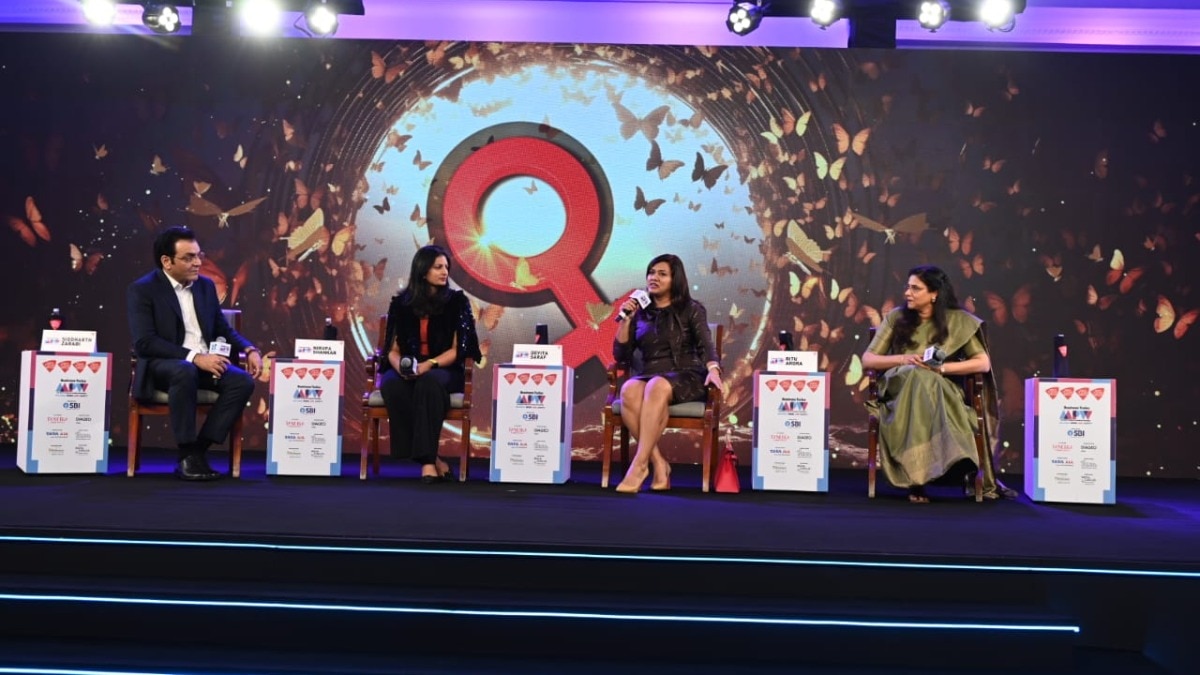Employed women in India are more concerned about achieving work-life balance compared to their male counterparts. Balancing work and life is crucial for emotional well-being and productivity. Many studies have been conducted on the work-life balance and the merging lines in corporate life. At the Business Today MPW 2024 session, a panel of sector experts with Ritu Arora, CEO & CIO of Allianz Investment Management, Asia Pacific, Nirupa Shankar, Joint MD of Brigade Group; and Devita Saraf, Chairperson & CEO of Vu Group, discussed their individual career paths and the significance of attaining harmony in all facets of life. The session was moderated by Business Today Editor Siddharth Zarabi.
Leading the session, Nirupa Shankar, Joint MD of Brigade Group, said: "The work-life balance concept is old. There was a time when we used to compartmentalise office work, time with children, and time for housework. At present, however, things are changing. Like at a vacation, I work for 2-3 hours, and while at work I do take a break a visit my child's school to attend his performance. Then your parents can get sick and you have to attend them. So, balance for me is priorities in a certain manner at a point in time. At present, both have to go hand in hand."
On her park, Devika Saraf of Vu Group stressed on maintaining barriers between work and life. "We are focussed and structured in terms of timings of work and personal life. It is because when we work, we can focus fully. And when we leave for home, we all go back together and report together. My employees don't come back and tell me I really stretched them."
Ritu Arora, CEO & CIO of Allianz Investment Management, Asia Pacific, said: "The balance between work and life is never at the same level. In my career, sometimes my work has taken the front seat, while sometimes by personal life has taken the lead. Maintaining is balance is very important and I see many women burning it out get a hold on it and trying to be a superwoman."
On whether monetary support helps in such situations, Arora said: "Wealth does cushion things and that thing comes with financial literacy and independence. To date, working women depend on males for their financial decisions. I would want that domain should lie with women."
When asked whether young workers and Gen Z are taking the work-life balance differently. Shankar said: "Gen Z and Gen Alpha are not looking to work that long hours. Their philosophy of life is how I get to enjoy my life, whereas the philosophy of our parents you have to work hard as that's the key to success in life."
Saraf said: "The work culture has changed from our parent's generation to Gen Z. Our generation is kind of the in-between generation who have seen very strict socialist and traditional mindset. The younger generation is whole different lot. I feel if you want to be successful in your business, then you have to be in love with the younger generation whether you agree to them or not. They are your consumers. They don't follow the structured life but there is lot of equality and balance in their lives."
According to a recent study, 47% of Gen Z professionals are considering leaving their current jobs within the next two years. Additionally, an equal number of them place high importance on work-life balance when considering potential employers. The findings from the report "Gen Z at Workplace" indicate a notable level of concern among Gen Z professionals, with 51% expressing worries about job security. This anxiety also extends to their future career prospects, as 40% fear difficulty in securing positions in their desired fields when entering the job market.

